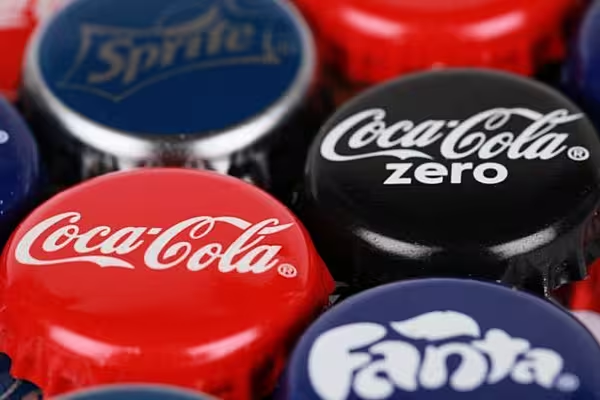Coca-Cola Co., grappling with consumers drinking less soda, is introducing a new version of Coke Zero to the U.S. as part of a strategy to reignite interest in its core soft-drink brands.
The product makeover includes a new name, look and taste. Coca-Cola Zero Sugar will be packaged in cans and bottles that largely resemble Coca-Cola Classic -- mostly red with the famous Spencerian script. Underneath the white Coca-Cola lettering, “zero sugar” is written in bold black. The top of the package will also be black.
The goal is that the new look will keep more consumers inside the Coca-Cola brand family, Chief Executive Officer James Quincey said on a call with media. That in turn, could help the Atlanta-based company see top-line growth.
“In the past, we had original Coke, with its red dressing, and then if people wanted a zero-sugar version they either had to go to Diet Coke with the silver look or they went to Coke Zero with the black look,” he said. “In the end, you’re asking people to some extent to change brand.”
Available Abroad
Coca-Cola is pushing to expand its non-soda offerings, but carbonated soft drinks still make up the majority of sales. To adjust to consumer preferences, the company has introduced smaller cans and bottles -- which have higher margins -- and reformulated drinks.
The new Coca-Cola Zero Sugar has been successful in other parts of the world. It grew by double-digit percentages last quarter in the Europe, Middle East and Africa and Latin America regions. The new look will reach shelves in the U.S. next month. Coca-Cola Zero is one of the company’s many reformulations in the works.
“It’s all in search of the same overall strategy, which is to grow the business while reducing the added sugar, principally through smaller packs, reformulation, innovation and more zeros,” Quincey said.
'Total Beverage Company'
The CEO, who took office May 1, is also looking to new products for growth. He is pushing Coca-Cola to become a “total beverage company,” that relies less on its core carbonated soft drinks.
Quincey’s strategy is already affecting the C-suite and management structure. Coca-Cola now has a chief growth officer and a chief innovation officer who report directly to the CEO. The company is no longer reporting results in terms of sparkling and still beverages. Instead, the portfolio is split into “category clusters”: sparkling soft drinks; juice, dairy and plant-based beverages; water, enhanced water and sports drinks; and tea and coffee. Quincey has also stressed the importance of taking some risks to drive innovation.
“One of the dangers of being 130 years successful is you think you’ve got the answers,” he said on a call with analysts. “There needs to be some courage to try new things.”
News by Bloomberg, edited by ESM. Click subscribe to sign up to ESM: The European Supermarket Magazine.














